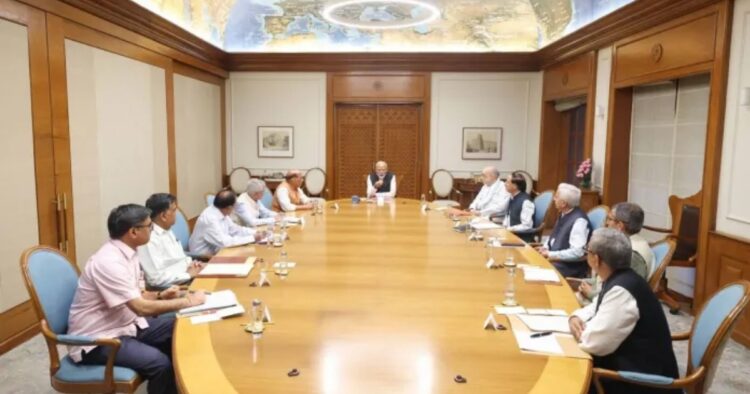KEY POINTS
- Centre announces caste census in upcoming nationwide population count.
- Move aims to boost social justice and targeted welfare policies.
- Previous Congress-led surveys lacked transparency and credibility.
In a major decision that marks a turning point in India’s social policy, the Central Government on Wednesday announced that the next nationwide population census will include a caste census. Union Home Minister Amit Shah hailed the move as a “historic decision” taken by a government that is “committed to social justice and the upliftment of every section of society.”
Decision Taken at High-Level Cabinet Meeting
The announcement was made after a meeting of the Cabinet Committee on Political Affairs (CCPA), chaired by Prime Minister Narendra Modi. Union Information & Broadcasting Minister Ashwini Vaishnaw later addressed the media and emphasized that this caste-based enumeration will help strengthen the country’s social and economic framework. He noted that while some states have previously conducted their own caste surveys, those exercises lacked transparency and uniformity.
Since India’s independence in 1947, caste has never been officially included in census data, except for Scheduled Castes and Scheduled Tribes. This left a huge information gap about the actual number and condition of various Other Backward Classes (OBCs) and other communities. Experts have repeatedly said that without this data, it is difficult to design policies that truly uplift disadvantaged groups.
Sociologists and policy researchers have long advocated for a caste census. Studies by the Indian Institute of Dalit Studies and other academic bodies have pointed out that proper caste data can help target government schemes more accurately. For instance, in rural areas, where OBCs and Dalits form a large part of the population, access to education, healthcare, and employment remains low. Data from a caste census can help bridge this gap.
Several non-BJP states like Telangana, Karnataka, and Bihar had already carried out separate caste surveys, arguing that they needed this data for local welfare programs. However, the Centre criticized these state-level surveys for being conducted in a “non-transparent” way, causing confusion and social tension. The Union government has now decided that a nationwide, scientifically conducted caste census will be a better solution that ensures fairness, accuracy, and uniformity.
Union Minister Vaishnaw also exposed the Congress party’s double standards on the issue. He reminded that in 2010, the UPA government under Manmohan Singh had promised to include caste in the census but eventually settled for a Socio-Economic and Caste Census (SECC), which was incomplete and lacked credibility. That report was never officially released, showing that the previous government was not serious about the issue.
Vaishnaw added that the Modi government has taken a bold and transparent step to include caste in the formal census process, unlike the Congress and its INDI Alliance partners, who only used the issue for vote-bank politics. He said that this step will truly help in the inclusion and empowerment of socially and economically backward communities across the country.
ALSO READ: “Centre Includes Caste Census in National Survey, Slams Congress for Past Opposition”
As per Article 246 of the Constitution, the subject of conducting a census falls under the jurisdiction of the Union Government. This makes the upcoming caste census not only valid but also authoritative and reliable. Legal experts have welcomed the Centre’s move, stating that it aligns with the constitutional promise of equality and affirmative action.
With accurate data, the government can now better assess the real needs of different communities. Whether it’s educational scholarships, job reservations, housing schemes, or skill development, every welfare program can now be fine-tuned based on solid data. This is expected to reduce corruption, improve delivery systems, and make social justice more meaningful and measurable.
Critics of the caste census often argue that such moves can divide society. But Home Minister Amit Shah clarified that the census will be conducted in a way that promotes unity and inclusion. He pointed out that when the BJP-led government introduced 10% reservation for economically weaker sections (EWS) from general categories, it was done without causing conflict among other communities, a clear example of balanced policymaking.
The public response to this decision has been largely positive, especially among OBC and Dalit communities. Civil society groups and economists have also welcomed the move, calling it a step toward evidence-based governance. The exact dates for the new census have not been announced yet, as the last census scheduled for 2021 was delayed due to the COVID-19 pandemic. But with this announcement, preparations are likely to move forward quickly.
By including caste in the national census, the Modi government has shown that it is serious about real social justice, not just political slogans. This data will empower policymakers, uplift marginalized communities, and make India’s development journey more inclusive and balanced. Unlike past governments that hesitated, this administration has chosen transparency, fairness, and truth over political convenience.

















Comments